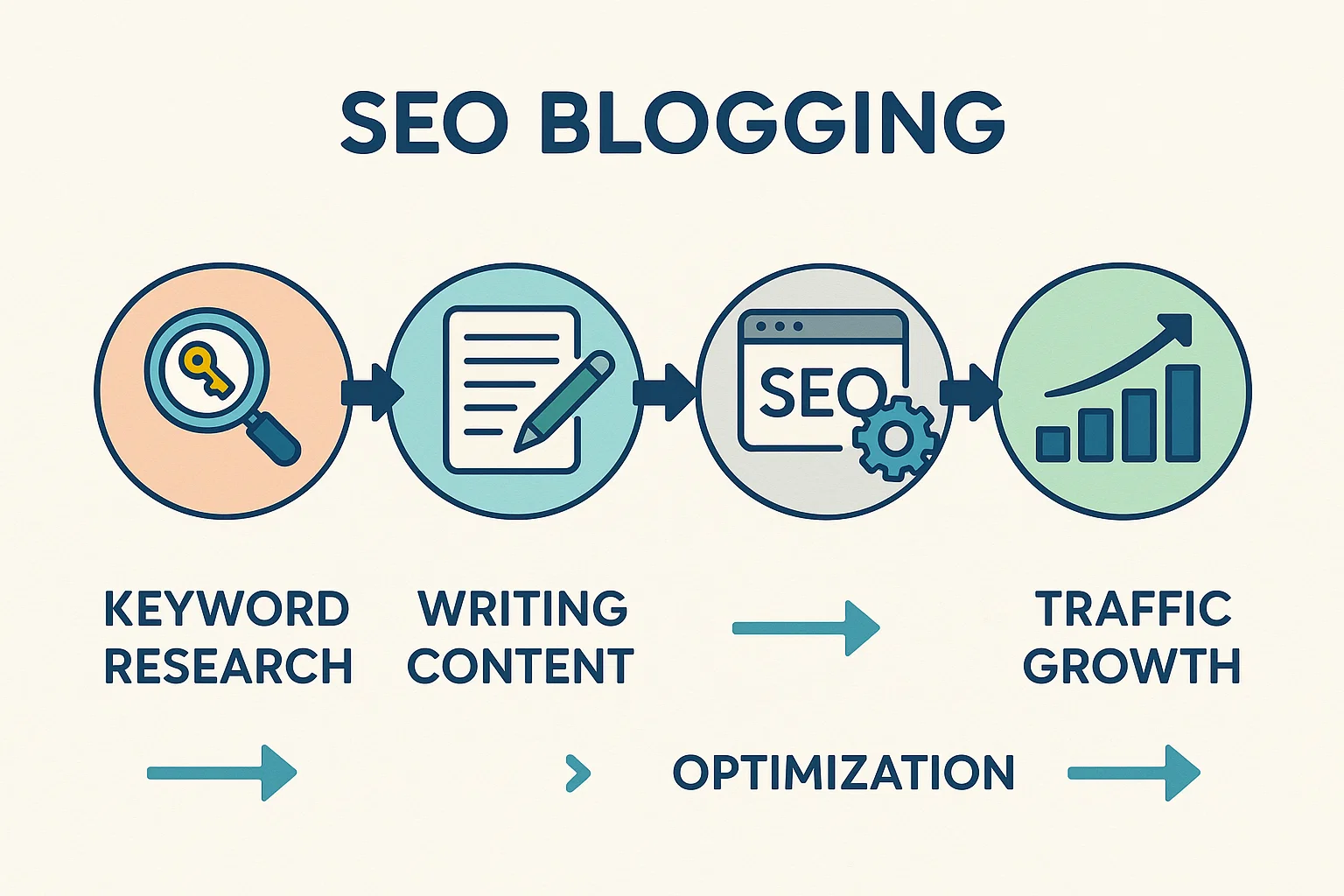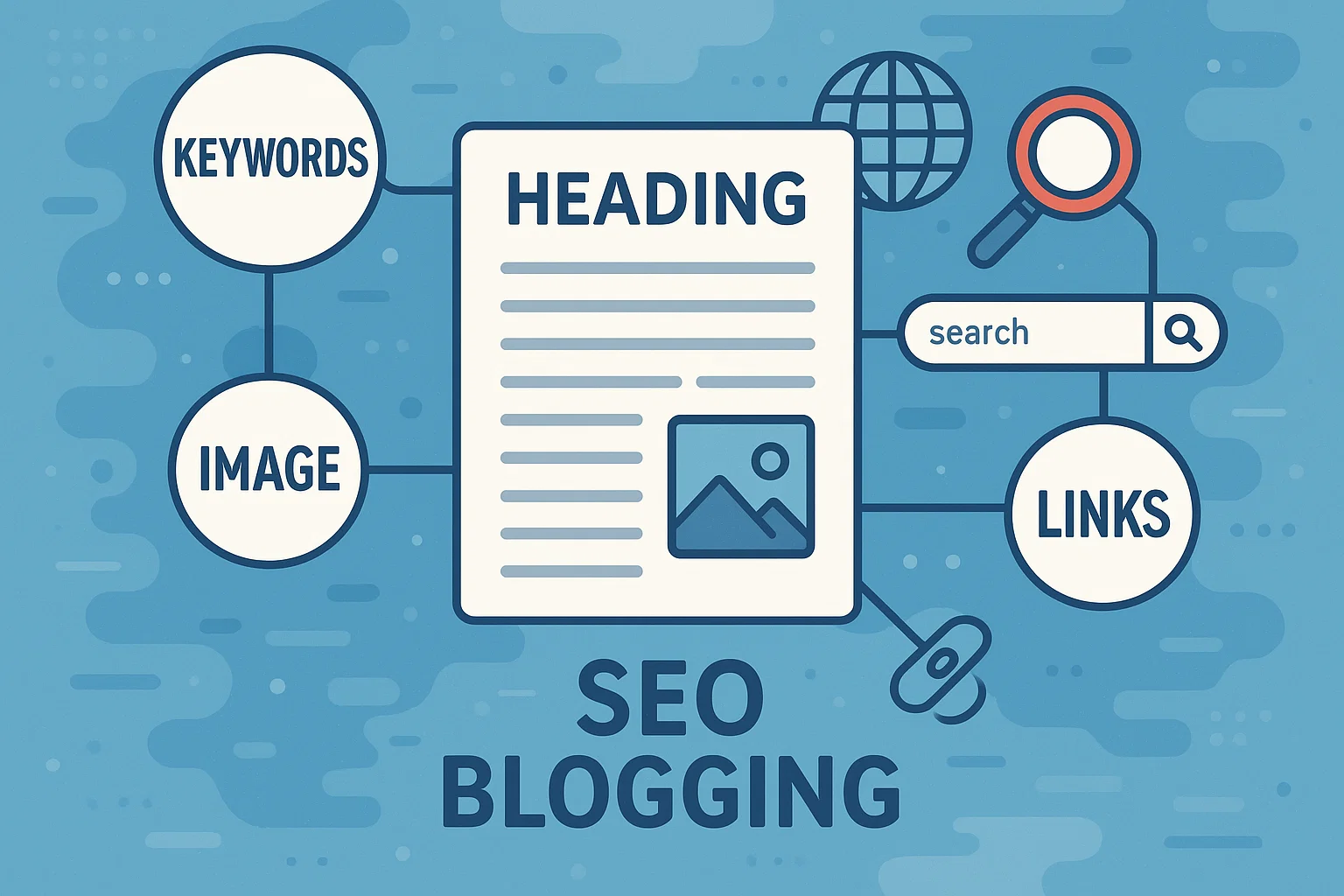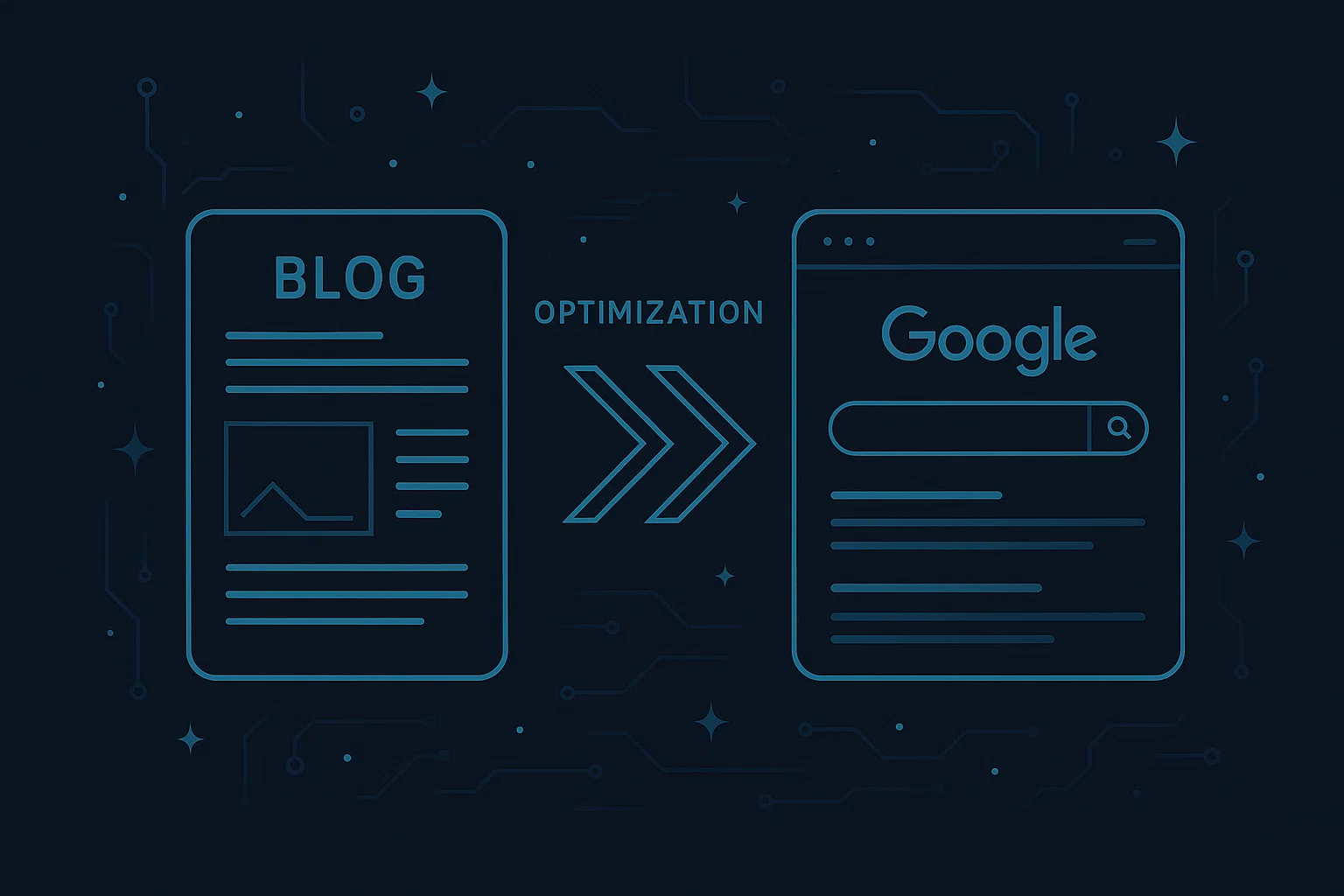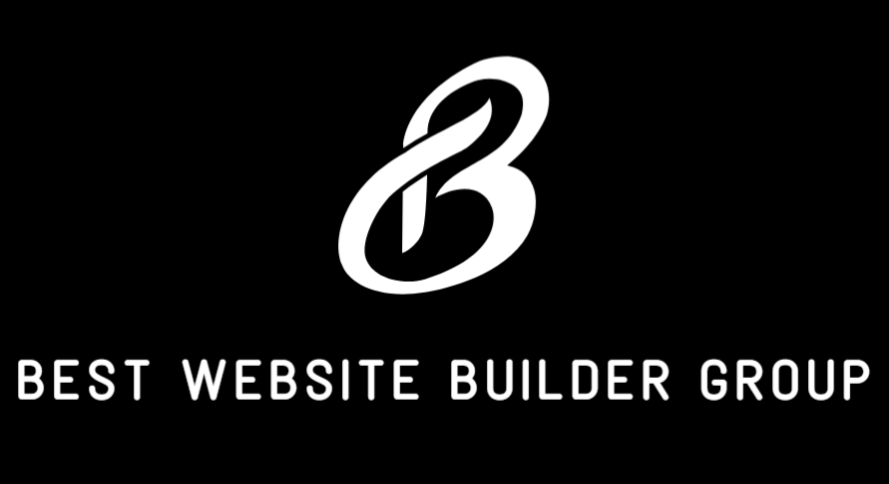When businesses look for ways to attract new visitors online, one of the most common questions is: what is SEO blogging? In short, it’s the process of writing blog posts that not only engage readers but also help websites rank higher in search engines. SEO blogging combines creativity with technical knowledge, ensuring each article reaches the right audience. By aligning content with search intent, businesses can expand their digital footprint, generate organic traffic, and build credibility in their industries.

The Role of SEO in Modern Blogging
Search engine optimization is the foundation of visibility on the web. Applied to blogging, it involves tailoring posts so search engines understand their relevance. That means structuring content around specific keywords, creating strong internal linking, and ensuring technical elements are optimized. For example, a company offering WordPress Website Design might create an article about common design mistakes and how to avoid them. When optimized properly, such content can attract both people seeking advice and search engines looking to rank authoritative sources.
How Optimized Blogging Works
SEO-focused blogging starts with keyword research. Tools reveal what phrases audiences are using to search, such as “improve site speed” or “best blog plugins.” Writers then create content answering those questions directly. Posts are structured with clear headings, readable paragraphs, and supporting links. Internal links to services like Website Redesign or Website Maintenance help visitors explore related topics while distributing SEO value across a site.

Why Blogging Matters for Businesses
For organizations of all sizes, blogging is more than a marketing tactic—it’s a growth driver. Sites without blogs often struggle to capture the variety of keywords customers use to find solutions. A company specializing in Ecommerce Website Design can use blogging to explain checkout optimization or mobile best practices. Such posts not only rank in search results but also demonstrate expertise, which builds trust with potential clients. According to HubSpot, businesses that blog consistently generate far more inbound leads than those that don’t.
Key Elements That Define Success
Several features make a blog effective in search rankings. Keyword optimization ensures the post matches real search queries, but content quality carries greater weight. Search engines now evaluate whether posts are useful, original, and easy to read. Structured headings, optimized images, and logical internal linking all contribute to improved performance. Linking to service-focused pages such as Shopify Website Design and WooCommerce Website Design also helps integrate blogs into broader site architecture. Together, these elements create posts that satisfy both users and algorithms.

Beyond Keywords: Writing for People
One misconception about SEO blogging is that it’s just about inserting keywords repeatedly. Search engines have evolved to prioritize intent and value. A well-written blog that answers a question comprehensively will outperform a poorly written post stuffed with keywords. That’s why the phrase “what is SEO blogging” must be treated as a guide, not a quota. Quality writing comes first; optimization follows to ensure visibility. This approach ensures readers stay longer, engage more, and are more likely to return to the site.
Long-Term Value of SEO Blogging
Unlike paid ads that stop producing results once the budget ends, blogs continue to deliver traffic for months or even years. A library of well-optimized posts becomes a long-term asset, driving consistent visitors without recurring costs. Over time, this compounding effect strengthens brand authority. Businesses investing in Technical SEO Services alongside blogging see even greater benefits, as optimized site performance supports higher rankings for all content. The long-term payoff makes blogging one of the most cost-effective marketing strategies available.

Best Practices for Effective Results
To achieve success, optimized blogging requires more than just writing. It involves a process: researching keywords, planning topics, structuring content, and analyzing results. Outbound links to trusted resources such as WordPress.org support provide credibility. Internal links to services like SEO Services guide readers deeper into the site. Consistency is key—publishing regularly signals that a site is active and authoritative. Businesses also benefit from incorporating visuals, examples, and updated information to keep posts fresh and relevant.
Challenges Businesses Face
Despite its benefits, blogging with SEO in mind has challenges. Competition for popular search terms can be intense, and ranking improvements may take time. Algorithms also change regularly, requiring continuous learning. For companies managing complex sites, balancing blogging with other tasks like Website Maintenance or major design upgrades can be difficult. These hurdles explain why many businesses turn to professional partners who specialize in SEO and content strategy. With the right support, challenges can be transformed into opportunities for growth.

Measuring Impact and Refining Strategy
Measurement is critical for proving value. Analytics tools reveal how blog posts contribute to traffic, conversions, and customer engagement. Metrics such as bounce rate and average time on page help determine whether readers find content useful. Reviewing performance also highlights which topics resonate most. For example, if posts about Website Redesign generate high engagement, businesses can expand that content into guides or case studies. This iterative approach ensures blogging efforts remain aligned with customer needs and business objectives.
Integrating Blogging With Broader Strategy
SEO blogging delivers the best results when integrated into a broader digital strategy. Blogs can be promoted on social media, included in newsletters, and linked from product or service pages. They also support larger website goals, such as improving visibility for WordPress Website Design or enhancing conversion paths for Ecommerce Website Design. By aligning blogs with other marketing activities, businesses maximize their reach and ensure every piece of content works toward shared objectives.

Conclusion
So, what is SEO blogging? It is the practice of creating blog content that serves readers while also improving search rankings. By combining keyword research, thoughtful writing, and technical optimization, SEO blogging delivers long-term visibility and authority. It integrates seamlessly with services like Shopify Website Design, SEO Services, and Website Maintenance, ensuring websites not only attract traffic but also convert it into meaningful business outcomes. For companies ready to strengthen their digital presence, Best Website Builder Group offers expertise to make SEO blogging a reliable driver of growth.
